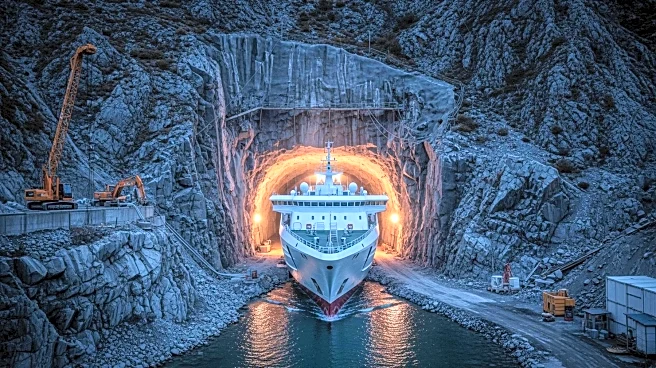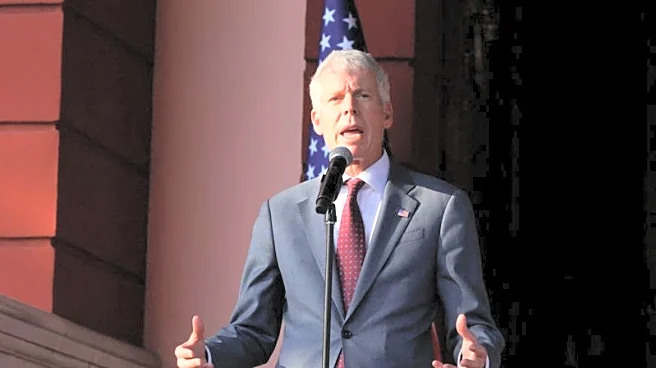What's Happening?
The Norwegian government has decided to withdraw funding for the construction of the world's first ship tunnel, citing excessive costs as the primary reason. Prime Minister Jonas Gahr Støre announced that the project, initially approved in 2021, has become financially impractical, with cost estimates ballooning from $325 million to approximately $930 million. The Norwegian Coastal Authority had been overseeing the project, which aimed to create a 2,200-meter tunnel through a mountain near Stad, a region known for challenging weather conditions. The tunnel was intended to improve safety and reduce travel times for ships navigating the dangerous Stadhavet sea stretch. Despite previous support, the government has prioritized other areas such as defense, health, and municipal finances in its upcoming budget, leaving the tunnel's future uncertain.
Why It's Important?
The decision to halt funding for the ship tunnel project has significant implications for Norway's maritime industry and infrastructure development. The tunnel was expected to enhance maritime safety and efficiency, potentially benefiting shipping companies and local economies by reducing delays caused by adverse weather. The withdrawal of funding reflects broader fiscal priorities and challenges in balancing ambitious infrastructure projects with budgetary constraints. This move may impact stakeholders who had anticipated economic benefits from the project, including the 450 companies that petitioned for its continuation. The decision also highlights the complexities of managing large-scale infrastructure projects amid fluctuating cost estimates and economic pressures.
What's Next?
Prime Minister Støre is set to present the new budget on October 8, which will officially confirm the government's decision to withdraw funding for the ship tunnel. The announcement may spark debate within the Storting, Norway's parliament, as opposition parties and coalition members could challenge the decision. The future of the project remains uncertain, with potential for renewed discussions or alternative funding strategies. Stakeholders, including local businesses and maritime operators, may seek to influence the government's priorities or explore other avenues to address the safety and efficiency concerns that the tunnel aimed to resolve.
Beyond the Headlines
The decision to shelve the ship tunnel project raises broader questions about the sustainability and feasibility of large-scale infrastructure initiatives in the face of rising costs. It underscores the need for comprehensive cost-benefit analyses and strategic planning to ensure that such projects align with national priorities and fiscal realities. The situation also reflects the challenges governments face in balancing ambitious development goals with practical financial management, particularly in regions with unique geographical and environmental considerations.











